As a department, we (as staff and students) are involved in a number of activities, which strive to conserve the natural world and people’s interactions therewith. The main spheres we are involved with, are community work, research, and other academic activities.
Our research focuses on the various components of the environment, the interactions between them, and human interactions with the natural world. From undergraduate level, students are exposed to the methodologies used to study ecosystems and the organisms therein. With vast expanses of indigenous forests, fynbos, freshwater and marine ecosystems close to our campus, students are involved with research projects in the area: either as part of their assignments for various subjects, or as extracurricular activities to help post-graduate students or local researchers to collect data.
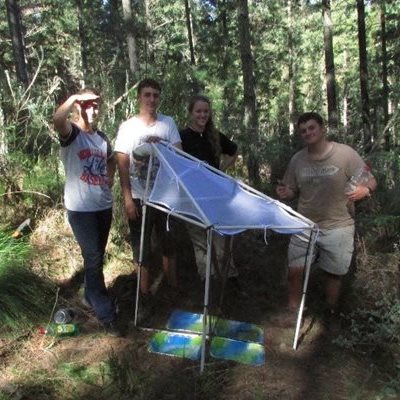
Undergraduate students performing insect surveys to assess invertebrate diversity in local forests.
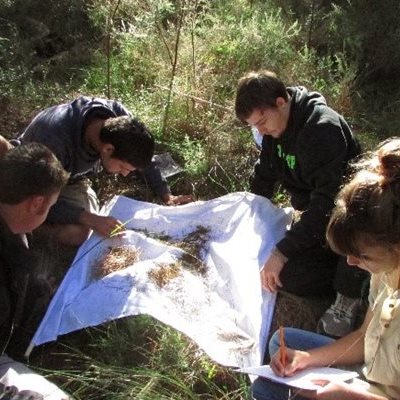
Undergraduate students performing insect surveys to assess invertebrate diversity in local forests.
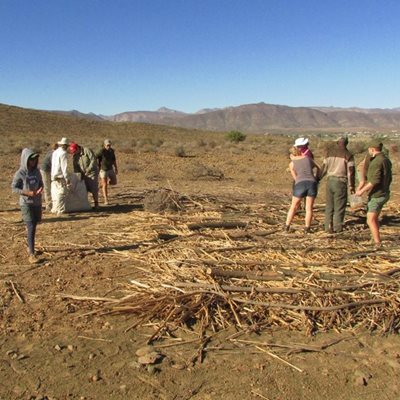
Undergraduate students assessing the effectiveness of rehabilitation methods in establishing indigenous plant cover near Prince Albert.
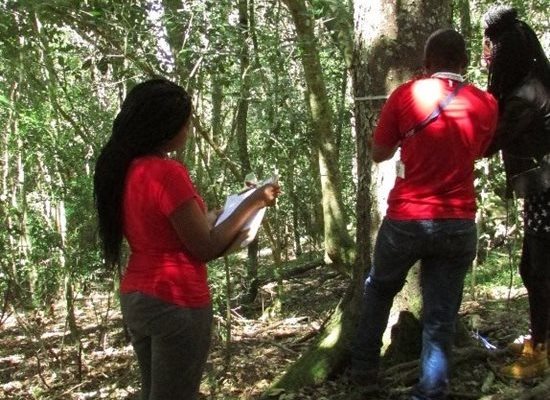
Undergraduate students recording tree width as part of vegetation surveys in the local forest.
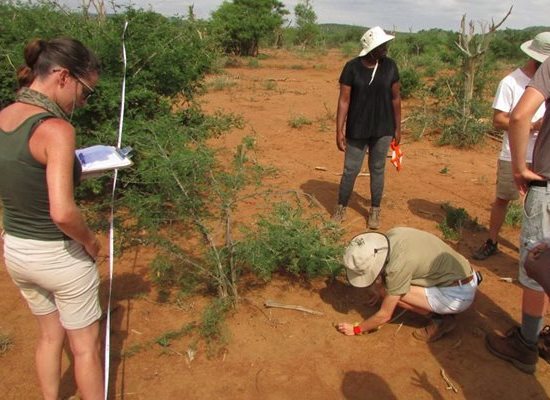
Students recording vegetation characteristics, to determine the impact of elephants on vegetation at Madikwe Game Reserve.
Our post-graduate students perform research on a wide array of topics, including large mammal conservation ecology, biodiversity, pollination mechanisms, and vegetation rehabilitation. The introduction of research in the curriculum, from undergraduate to post-graduate level, provide a strong basis for our students to collect and analyse data in their working environment, and make educated decisions regarding the management of the natural environment. It also promotes critical thinking, and the curiosity-driven exploration and questioning of the world around them.
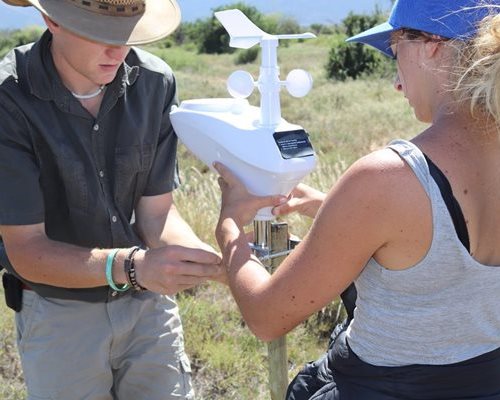
Installing a field weather station during a mammal survey in Samara Game Reserve
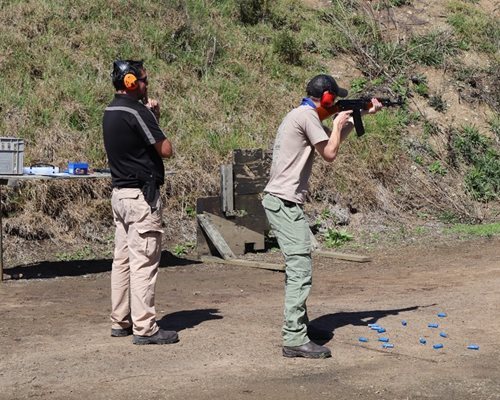
Facilitation of firearms competency training with local professional training service providers.
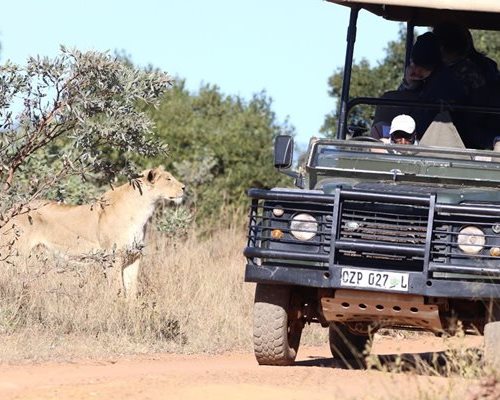
Advanced Diploma field trip to Welgevonden Game Reserve
As part of research, we also foster community and cross-platform collaboration through the establishment of research-orientated groups and entities such as the Wildlife Ecology Lab and Sustainability Research Unit, and by promoting international collaboration between academic institutions. As part of the latter we are in close partnership with REHABS, a French Research Laboratory, based on the George Campus, focusing on the functioning of the interface between protected areas and their neighbouring production landscapes, wildlife ecology and human-wildlife coexistence along gradients of anthropogenic transformation, the use of biodiversity in livelihoods in the face of climate change, and adaptations to cope with environmental risk.
In the academic sphere, we strive to provide the best possible education to students who study in our department. In order to do so, classes are kept relatively small, promoting more individual attention and collaboration among class members. We also aim to complement theoretical knowledge with practical skills. To this end, we have weekly practical sessions, on and off campus, to provide students with the opportunity to learn practical skills associated with the assessment and conservation of the natural environment. This also provides them with the opportunity to observe the organisms and interactions they were taught about in a class setting.
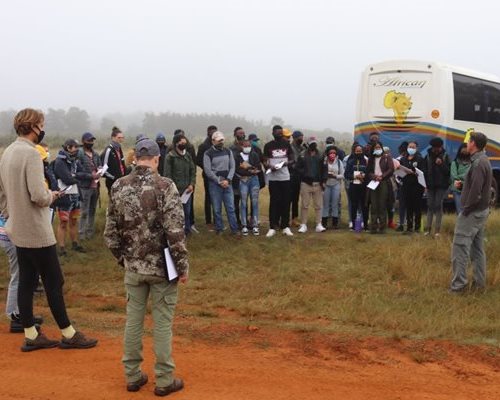
2nd year practical in Gondwana Game Reserve
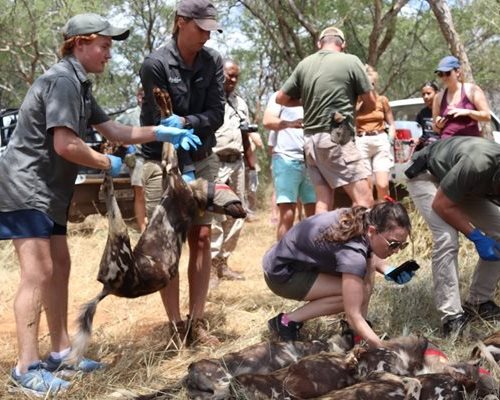
Advanced Diploma students assisting with African Wild dog translocation in Madikwe Game Reserve
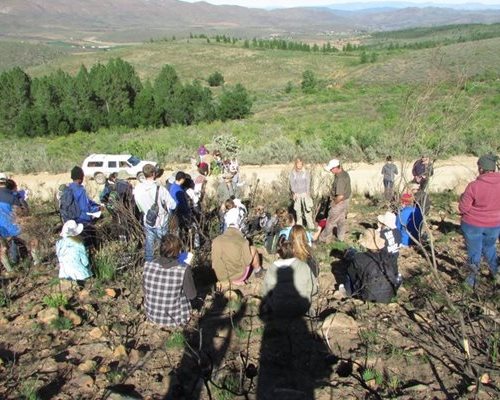
Students learning about fynbos and fire ecology from experts in the field.
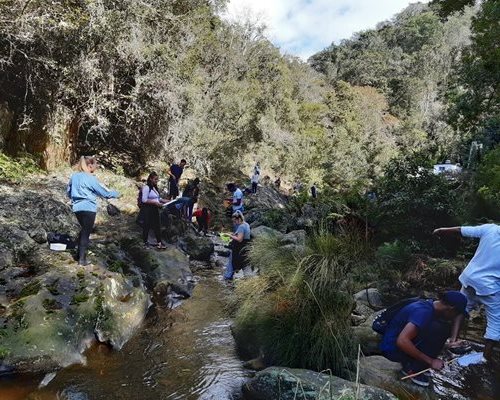
First-year students performing aquatic invertebrate surveys in the local river, to assess the river condition.
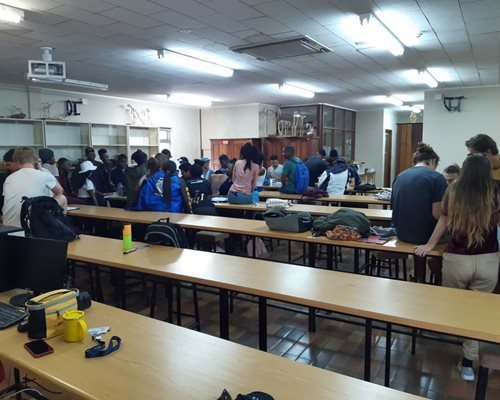
First-year students working together to identify frogs caught during the previous evening’s practical session.
As part of the National Diploma, students are required to perform one year Work-Integrated Learning at a conservation organisation or reserve. During this year, they have the opportunity to apply their knowledge and contribute to the conservation of the natural world in South Africa or further afield.
The theoretical and practical components of our course, combined with the opportunity to become involved with local research projects, provide our students with the opportunity to receive a holistic and well-rounded education, giving them a competitive edge when establishing themselves in the nature conservation field.
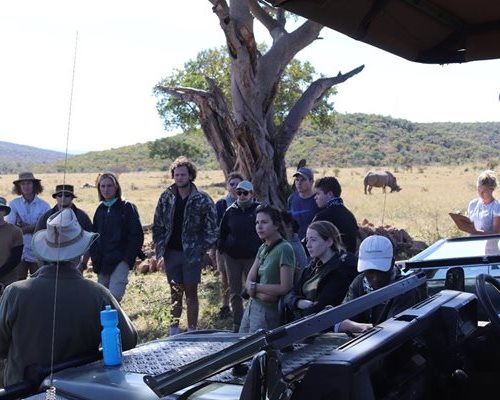
Learning about rhinos as ecosystem engineers. Advanced Diploma student during their Savanna systems field excursion.
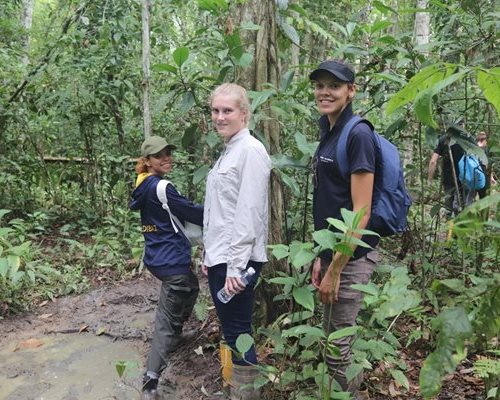
Postgrad students visiting Bornean tropical forests during a post-conference tour in Malaysia